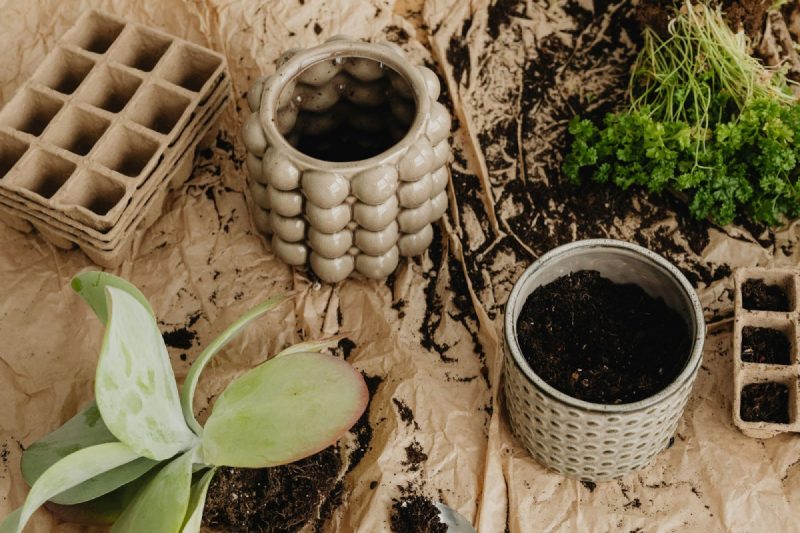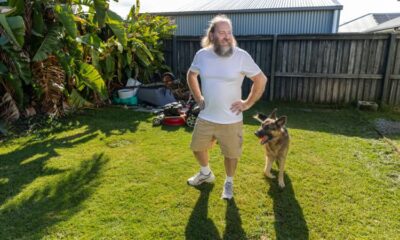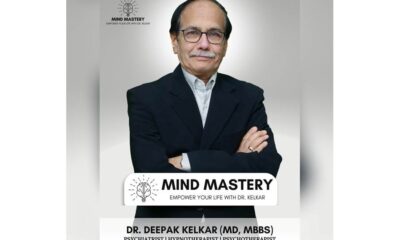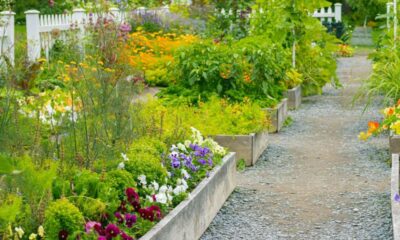Health
Darke Hull: The Role of Gardening in PTSD Therapy

Gardening has long been celebrated as a simple yet rewarding activity that connects people to nature, but its impact extends far beyond sheer aesthetics. As mentioned by Darke Hull, for individuals grappling with mental health challenges like PTSD, it offers a unique therapeutic outlet that combines physical engagement, emotional grounding, and sensory immersion.
Whether through structured horticultural therapy programs or personal gardening initiatives, the act of tending to plants offers a gentle yet transformative journey toward emotional resilience and healing. By exploring the multifaceted benefits of gardening, individuals can unlock a path to tranquility, growth, and renewed hope.
Gardening as a Path to Tranquility
Gardening has emerged as a powerful tool for mental health, offering a unique combination of physical activity, sensory engagement, and emotional connection. The simple act of tending to plants can create a sense of calm and routine, helping individuals focus their minds and alleviate stress.
Studies have shown that spending time in green spaces can greatly lower cortisol levels, which are associated with stress and anxiety. Whether it’s growing vibrant flowers or nurturing a small vegetable patch, gardening allows people to immerse themselves in a soothing environment, providing much-needed solace in the face of life’s challenges.
For those recovering from conditions like PTSD, gardening offers a safe, restorative outlet. The repetitive motions of planting and watering provide a grounding experience, while the visible growth of plants fosters a sense of accomplishment. Many have found peace and stability by incorporating gardening into their daily lives, transforming outdoor spaces into personal sanctuaries.
Understanding PTSD and Why Alternative Therapies Matter
Post-Traumatic Stress Disorder can disrupt every facet of life, leaving individuals grappling with intrusive memories, heightened anxiety, and an overwhelming sense of hypervigilance. Traditional treatments like therapy and medication are vital, but they don’t always address the need for hands-on approaches to healing.
This is where alternative therapies, such as gardening, provide a much-needed outlet. Nature-based activities like gardening offer a gentle way to reconnect with the present moment, which is often difficult for those with PTSD.
By creating a connection with the natural world, individuals can step outside the mental loop of trauma and focus on something tangible and nurturing. The process of working with soil, seeds, and plants taps into a primal rhythm that promotes emotional regulation and calm, offering a counterbalance to the inner turmoil PTSD often brings.
The Therapeutic Power of Gardening
Gardening has a remarkable ability to engage the senses in ways that calm the mind and body. The textures of soil, the scent of herbs, and the vibrant colors of flowers work together to create a multisensory experience. This immersion can serve as a natural form of mindfulness, encouraging individuals to leave behind racing thoughts and focus entirely on the present.
Beyond sensory engagement, the physical act of gardening has physiological benefits. Studies suggest that working with plants can reduce stress hormones and lower blood pressure, creating a state of relaxation that supports mental clarity. The rhythmic tasks of digging, planting, and pruning ground individuals at the moment provide a sense of stability that counters PTSD.
Horticultural therapy formalizes these benefits, offering structured gardening programs designed to support recovery. Veterans’ groups and mental health organizations have embraced gardening as a therapeutic tool, with many participants reporting a renewed sense of purpose and emotional resilience.
Benefits of Gardening for PTSD Recovery
Engaging with gardening can provide profound relief for individuals living with PTSD. The act of nurturing plants creates a sense of responsibility and purpose, which can be grounding for those struggling with feelings of detachment or aimlessness.
The physical activity involved in gardening helps release endorphins, the body’s natural mood enhancers. This movement not only reduces tension but also promotes better sleep, a frequent challenge for PTSD sufferers. Additionally, spending time outdoors in natural light can regulate serotonin levels, further aiding emotional balance. Many have found that simply being in a green space fosters a deep sense of peace and connection that counters feelings of isolation.
Gardening also acts as a bridge to emotional grounding. The repetitive tasks, combined with the sensory stimulation of working with soil and plants, create a meditative rhythm that soothes the mind. Over time, these small acts of care can work wonders in building emotional resilience and helping individuals regain control over their lives.
Starting a Garden for Healing
Gardening doesn’t require extensive knowledge or resources; even a small patch of soil or a few pots on a windowsill can become a starting point. Choosing low-maintenance plants, such as succulents or hardy herbs, allows individuals to ease into the process without feeling overwhelmed. These plants often thrive with minimal care, making them ideal for beginners seeking confidence.
Creating a healing garden can also involve incorporating calming features that enhance the overall atmosphere. Water elements, such as fountains or birdbaths, bring soothing sounds, while shaded seating areas provide a place for rest and reflection. Starting small with container gardens or raised beds can make the experience manageable and enjoyable, especially for those new to the practice.
Even the simplest gardening routines, like watering plants at the same time each day, can instill a comforting sense of structure. These small rituals can be incredibly grounding, especially for individuals navigating the unpredictable emotional landscape of PTSD.
Stories of Change and Resources for Support
The transformative power of gardening is evident in the stories of those who have turned to it as a path to recovery. Veterans have found solace in community gardening programs that provide a space to connect with others while nurturing the earth. These shared spaces often become sources of camaraderie and mutual support, helping participants rebuild trust and cultivate emotional resilience.
Organizations dedicated to mental health have embraced gardening as a therapeutic tool, offering structured programs tailored to individuals with PTSD. Horticultural therapy initiatives often combine gardening with counseling, creating an environment where individuals can heal at their own pace. For those seeking to explore gardening’s benefits further local gardening clubs, online forums, and nonprofit programs can provide guidance and support for beginners.
Disclaimer: This is a sponsored piece of content. Time Bulletin journalists or editorial staff were not involved in the production or writing of this content.
-

 Business2 weeks ago
Business2 weeks agoCorporate Social Responsibility in Action: Amerilodge’s Support of Health and Education Causes
-

 Tech3 weeks ago
Tech3 weeks agoAdobe Releases New AI-powered Video Editing Tools for Premiere and After Effects with Significant Motion Design Updates
-

 Health4 weeks ago
Health4 weeks agoFinally, an Ayurvedic Sunscreen Parents Have Been Waiting For; ShuShu Babies Gentle Sun-Care Solution for Children
-

 Business2 weeks ago
Business2 weeks agoWhere There Is a Will, There Is a Way: Hayson Tasher and the New Year, New Me Mindset in Security Entrepreneurship
-

 Business4 weeks ago
Business4 weeks agoHow Black Banx Will Power the Next Era of Financial Inclusion
-

 Health4 weeks ago
Health4 weeks agoApex Health Co. Brings Healthcare Into the Digital Age
-

 Business3 weeks ago
Business3 weeks agoJoesiah Gonzalez’s Perspective On Smarter Fundraising Strategies That Transform Local Nonprofits
-

 Health1 week ago
Health1 week agoMy Juno Health Enterprise Partnerships Signal Shift From Claims Management to Utilization Prevention
























